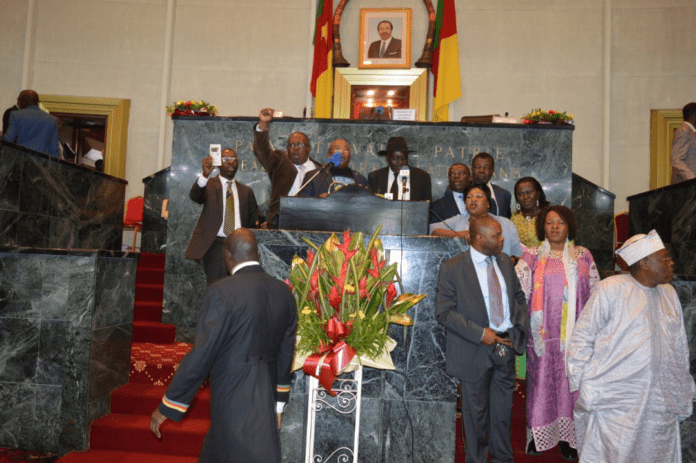The first ordinary session of the 2020 legislative year opened in the nation’s capital Yaounde on 20 March 2020. Members of the Senate and National Assembly had earlier been convened by heads of the two houses of parliament to the gathering.
The Senators and MPs met at a particularly risky time, ignoring preventive measures against the spread of the novel coronavirus.
On 17 March 2020, following instructions from the Head of State, the Prime Head of Government, Joseph Dion Ngute prohibited the gathering of more than 50 on any occasion across the national territory, with effect from 18 March 2020. The measure, amongst others, was put in place to contain the spread of the virus which has to date been detected in 27 persons in Cameroon, according to the Minister of Public Health.
However, despite public outcry, business went on as usual in both houses of parliament.
Renowned civil society activist and human rights lawyer, Nkongho Felix Agbor, frowned at the move taken by the Speaker of the National Assembly. “While the government is fighting and preventing the COVID-19 pandemic, the Honorable Speaker cannot be seen to be endangering the lives of citizens. The protection of the population is the ultimate goal of each government. The laws of the country must be respected by each and every one. No one is above the law,” he said.
The Cameroon penal code punishes with imprisonment of three months to three years anyone who in his conduct facilitates the spread of a contagious and dangerous disease.
Cavayé Yéguié Djibril, an MP of the ruling Cameroon People’s Democratic Movement (CPDM) party, was this week re-elected Speaker of the National Assembly. The 80-year old ailing MP has successively held the position since 1992. He has not manifested any intention of leaving the position in the near future.
Prior to his re-election, Cavayé had just returned from France; a COVID-19 high-risk country, where he was receiving treatment for an undisclosed illness and did not self-isolate for 14 days as advised by health officials.
Under Cavayé, the National Assembly has adopted some of the country’s most controversial bills, including the 2014 anti-terrorism bill which was eventually passed into law and used to stifle freedom of expression and silence the media. As a speaker, he has also been noted for rejecting many development-oriented private member’s bills tabled by opposition MPs.

